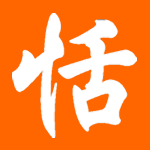Reader Dan has pointed me to today's "Joe and Monkey" by Zach Miller.
The two-character phrase featured in the comic 白癡 means "idiot".
Just a side note, even though both Japanese and Chinese use same if not similar characters, when they are used as Chinese, the characters are "Hanzi", and as Japanese, they are referred as "Kanji".


Don't forget to refer them as Hanja in Korean.
ReplyDeleteIn Japanese, 白痴 means "heavily retarded". These days, many people think it's too offensive(non-PC) and it has become almost taboo to use this word in the media or in public. My kanji input program doesn't translate Hakuchi into 白痴. Like おし(oshi) which means deaf, this word may go extinct in the near future.
ReplyDeleteHow about in Chinese?
Viet Nam also another country that used Chinese Hanzi as their writing system for most of its history.
ReplyDeleteThey call it "Chu Han" Usage was the same except since the adj-noun agreement is backwards thats why Chu(meaning character) precedes Han.
Ken,
ReplyDelete白痴 originally meant "retarded", but it is mostly translated as "idiot".
Peng shouldn't forget that many Koreans today believe that the Japanese ripped off most of their culture when they effectively kidnapped all of the teachers and scientists (or what passed for them) a couple hundred years ago. The Koreans would suggest that all Japanese contribution would then be tainted by virtue of the fact that it is bastardized Korean.
ReplyDeleteThis is quite a nice blog.
ReplyDeleteI'm very happy I have only had flowers and birds tattooed on me. :)
(Oh...and a heart with the spanish word "dios"... but, I know what that means.)
"Peng shouldn't forget that many Koreans today believe that the Japanese ripped off most of their culture when they effectively kidnapped all of the teachers and scientists (or what passed for them) a couple hundred years ago. The Koreans would suggest that all Japanese contribution would then be tainted by virtue of the fact that it is bastardized Korean. "
ReplyDeleteSure, if you were a nativist Korean with an inferiority complex, this line of thinking would be very persuasive. Just like the Europeans who tell Americans they have no history. By that line of reasoning Korean is bastardized Chinese. 白痴.
白痴is not a very offensive word in chinese compared to "Diu" in cantonese or others
ReplyDeleteaduh, they're all the same word (kanji etc) just different pronounciation
ReplyDeleteAnonymous said...
ReplyDeleteaduh, they're all the same word (kanji etc) just different pronounciation
Yes, but meaings change over time and with local custom. So 走 means 'run' in Japanese, but 'walk' or 'leave' in Chinese.
And there are kanji of Japanese origin that don't exist in Chinese. 円 is the most obvious example ('en' meaning circle, 'yen' for the currency).
My Japanese teacher insisted with a puzzled look that the Spice Girls' 女力 ('girl power', they called it) is 'not a word', but I'm sure a Chinese person would have no difficulty with it.
If we're going into Cantonese, my favourite is 蠢。
ReplyDeleteVanessa's right Anon. Words can mean very different things in different Chinese "dialects."
ReplyDeleteto David:
ReplyDelete"女力" is not a word in Chinese either. "Spice Girls" is translated to "辣妹" in Chinese.
I think Chinese character(so called Hanja) has dispeared in Korean . An ordinary people maybe cannot recognise ten characters. Is this true, peng?
Well in taiwan today, 白痴 is commonly used as is about considered as impolite as well...calling somebody an idiot. But as far as having any negative PC connotations there really aren't any.
ReplyDeleteDavid said...
ReplyDeleteAnd there are kanji of Japanese origin that don't exist in Chinese. 円 is the most obvious example ('en' meaning circle, 'yen' for the currency).
Not quite. Over the years, the characters have been simplified in both Chinese and Japanese. The original character was 圓, which meant both circle and a circular coin and unit of currency. 円 is the Japanese simplified version of 圓 and was thus used for the Japanese currency.
The Chinese simplified version of 圓 is 圆. The Chinese may have though that even this form is too complex, so for the name of the Chinese currency the Yuan, they decided to use the simpler character 元 instead, since it is also read yuan.
There are in fact some characters that were invented in Japan, such as 峠 (touge, meaning "mountain pass"), but 円 is not one of them.
-Alan